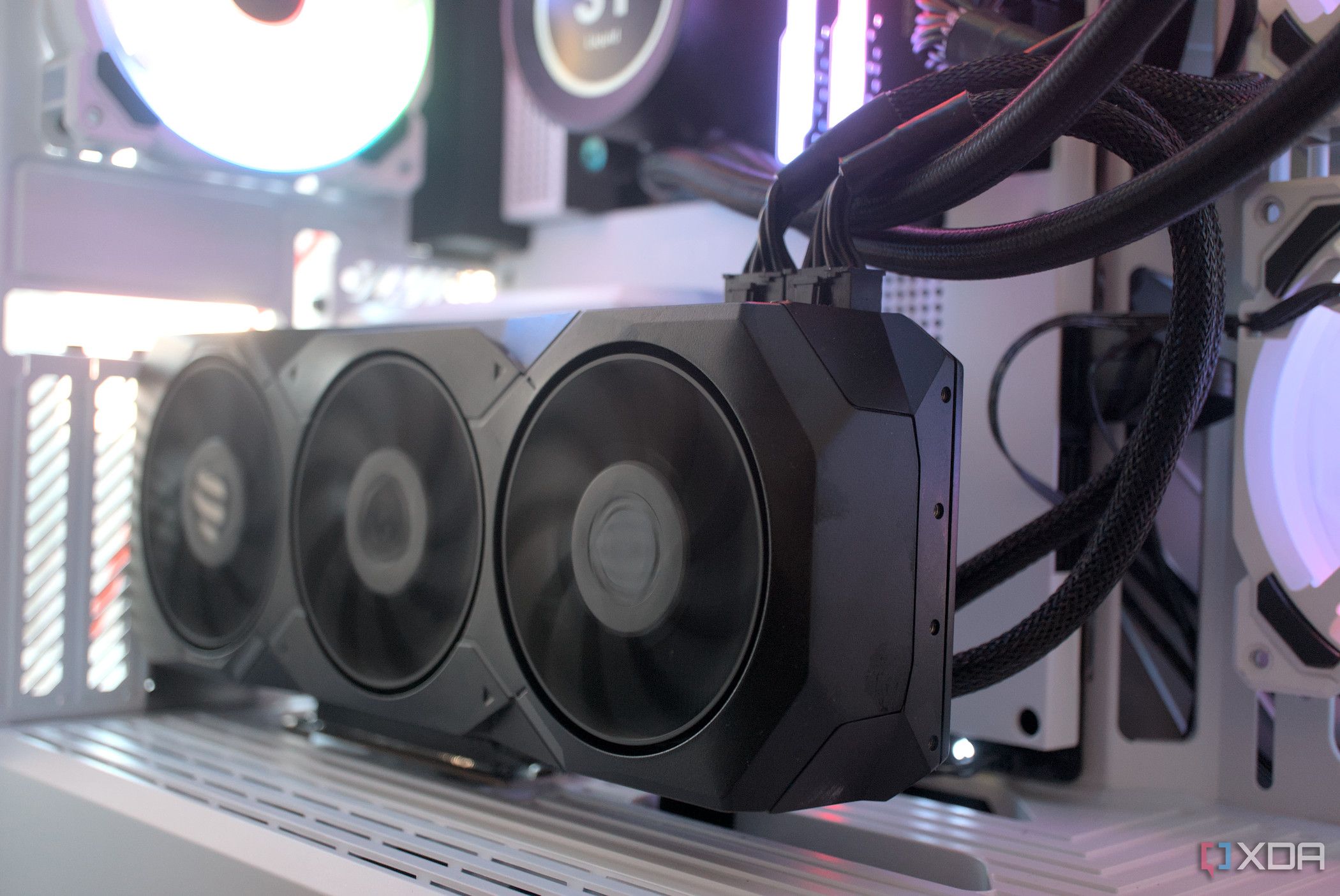To optimize your Chromebook’s performance & speed in Linux, you should regularly clear your cache & delete unnecessary files that could slow processing speed. Using a lightweight Linux distribution or window manager can also improve performance. Turning off unnecessary animations can conserve CPU resources & ensure smooth operation. Monitor your system for resource-consuming apps & close them when not needed. Regular system updates also play a crucial role in maintaining performance by improving system stability & fixing bugs. Finally, using command-line tools instead of graphical applications can reduce resource usage.
Boost Your Chromebook’s Performance: Essential Tips for Optimizing Linux Speed. Improve your Chromebook’s speed with our essential guide. Discover easy, user-friendly tips to optimize Linux performance on your device. Enjoy a faster browsing experience now!

DRASTICALLY Improve Chromebook Performance (2022)
Boost Your Chromebook’s Performance: Essential Tips for Optimizing Linux Speed DRASTICALLY Improve Chromebook Performance (2022) Boost Your Chromebook’s Performance: Essential Tips for Optimizing Linux Speed
https://www.youtube.com/embed/rWXnHLjQ4rQ
Enhance Your Chromebook’s Performance with Linux
Understanding how to optimize Linux speed allows you to enjoy an upgraded, high-speed Chromebook experience. Differing from Windows & macOS platforms, the Linux environment on Chromebook provides a distinct operating potential. This guide offers insights into enhancing Chromebook capabilities using the Linux system for more productive, efficient computing.
Understanding Your Chromebook with Linux
As a tech enthusiast, my journey with Linux on Chromebooks began a few years back. I was searching for ways to boost my Chromebook’s performance, and I discovered Linux as a superb solution. It’s a potent tool that gives me more control over my Chromebook functions. My personal experiences underline the importance of optimizing Linux speed to boost Chromebook performance.
My Chromebook, juiced up with Linux, responds swiftly to commands. It runs multiple apps without slowing down & delivers high-definition video streaming effortlessly. From design applications to gaming, Linux makes my Chromebook a powerful, versatile machine. Its potential for amazing performance is unlimited, provided it’s properly optimized.
Take a leaf out of my book if you’re eager to revolutionize your Chromebook experience. A crucial aspect here is the emphasis on optimization. With my guide on how to boost your Chromebook’s performance using Linux, you can transform your device into a computing powerhouse.
Linux Improvement Tips for Chromebook
Adapting Linux for the needs of your Chromebook involves several key strategies. Weather it’s disabling unnecessary processes, setting priorities right, or making smart hardware choices – every decision matters. Here, we outline tips for maximizing Linux speed, contributing to your Chromebook’s performance enhancement.
Start-Up Processes Setting
A key step in optimizing Linux speed involves managing startup processes. Your Chromebook’s performance can slow down due to unnecessary apps running on your Linux system. Start by examining your startup applications, then disable those that are not essential.
Access the Startup Applications Preferences tool in your Linux system, scan it for unneeded processes, & disable those for a start. This action aids in the removing of redundant apps at launch, aiding in improving your Chromebook’s startup time & overall performance.
A word of caution here – consider the system’s functionality before switching off processes. Make sure you don’t disable a process that the operating system or an essential app requires.
Hardware Choices Impact
A Chromebook’s life gets longer the more hardware improvements we make. An increase in RAM can vastly improve Linux speed. Consider moving to a solid state drive, replacing your hard disk, to hasten boot speeds & improve data access times.
Make appropriate choices in peripherals to enhance the overall performance of your Chromebook. Faster & higher capacity USB drives & SD cards can fix storage issues, speeding up data transfer & execution of Linux commands.
Opting for faster internet connections & Wi-Fi routers can deliver smoother streaming & lower load times. Faster printing can get achieved via faster, more efficient printers. Together, these hardware upgrades can enrich your Linux experience on Chromebook.
Essential Software Tweaking on Linux
Software tweaks bring remarkable improvements to your Linux speed. Discussed below are some software tuning tips that can significantly strengthen the power of your Chromebook.
Revisited Swap Policies
Linux’s ‘Swappiness’ is a parameter that determines the system’s preference for moving processes out of physical memory to swap space. A high ‘Swappiness’ value means that the kernel will swap out more, while a lower ‘Swappiness’ value means the kernel will try to avoid swapping out as much as it can. Adjusting this parameter can boost Linux speed, thus upgrading your Chromebook’s performance.
By default, the ‘Swappiness’ parameter is usually quite high, around 60. According to my experience, reducing the parameter to around 10 will provide a noticeable boost to your Chromebook’s performance.
To change the ‘Swappiness’ value, open the text editor on your Linux terminal & input the necessary commands. Reduced ‘Swappiness’ means the kernel will make more efficient use of your Chromebook’s physical memory, rather than relying more heavily on swap space.
Optimizing File Systems Performance
The performance of file systems can be a bottleneck in your Linux & thereby Chromebook’s operating speed. File system tweaking can make Linux more efficient, resulting in a speedier Chromebook.
Configuring your Linux file systems with the ‘noatime’ option can enhance your Linux speed. This move will prevent the system from recording the last access time of files, thus saving on I/O operations & improving your system speed.
Applying this change requires you to modify the ‘/etc/fstab’ file. Updating entries to include the ‘noatime’ option can be a game-changer for your Chromebook’s performance.
- IoScheduler Selection for Linux
- Turning off Unnecessary Services
- Updating Your Linux System Regularly
- Choosing Lightweight Applications on Linux
- Procfs & Sysfs Tuning
Linux Tools for Chromebook Performance Optimization
System tools can support the amplification of performance. Several Linux system tools can help you boost your Chromebook’s speed & performance.
Use of System Monitor
The System Monitor is a fantastic tool that lets you examine the processes running on your Linux system. It aids in identifying processes that are placing high demands on your Linux resources. This way, you can spot & address any potential issues that could be slowing down your Chromebook.
It’s simple to use – you can access this tool in the Linux system menu & activate it in your dashboard to start monitoring your system processes.
Monitoring system processes keeps you informed about system-status, while offering greater control over your Linux resources, & hence your Chromebook’s performance.
Performance Tuning Tools
Linux offers a variety of performance tuning tools which you can leverage to optimize Linux speed. A popular choice is TLP. It’s a sophisticated power management tool for Linux that provides advanced options for managing power consumption & optimizing performance.
On installing TLP, the software customizes the power-related settings in your Linux system to optimize power consumption. This way, it enhances overall system performance & boosts your Chromebook’s speed.
Ideally, you’d install TLP & let it do its magic. Be that as it may, for those who wish for more control, TLP is highly configurable, empowering you to set your own power settings & manage system resources according to your requirements.
| Linux Tool | Function |
|---|---|
| System Monitor | Monitors system processes & resource usage |
| TLP | Optimizes power consumption & system performance |
| Ulatencyd | Manages system resources & improves response time |
| Stacer | Provides system cleaning & optimization features |
| Profiles | Delivers system settings & customization options |
Delve Deeper into Linux on Chromebook
Revamping your Chromebook’s performance by optimizing Linux speed takes time & patience, but the benefits are worth your investment. Every time you adapt Linux for your Chromebook essentials, it becomes more efficient & powerful. Together with the right hardware & software adjustments, your Chromebook can deliver a top-class computing experience with high-speed functionality while running the Linux system.
“Chromebook combined with an optimized Linux system can provide a high-speed, powerful computing experience.”

How can you boost your Chromebook’s performance?
Boosting your Chromebook’s performance can be achieved by closing unused apps & tabs, clearing your browsing data periodically, updating your Chromebook regularly, & disabling apps or extensions you don’t need.
What are some essential tips for optimizing Linux speed?
Some essential tips for optimizing Linux speed include: using a lightweight desktop environment, disabling unnecessary startup applications, using prelink & preload tools, configuring swappiness, & keeping your system updated.
Why is my Chromebook running slow?
A Chromebook might run slow due to numerous factors, such as too many apps or browser tabs open,a hard drive that is near full, an outdated operating system, or an infection from malware or a virus. Resolving these issues can help improve the speed of your Chromebook.
How do I clean up my Chromebook to make it run faster?
To clean up your Chromebook & make it run faster, try clearing up your hard drive space, uninstalling unused apps & disabling unneeded extensions, & clearing browsing data on a regular basis.
How can I optimize my Linux operating system for better performance?
To optimize your Linux operating system for better performance, you can try minimizing hard disk swappiness, using lightweight desktop environments, disabling unnecessary services at startup, & keeping your system up-to-date with regular software & OS updates.

Conclusion
By following these essential tips, boosting the performance of your Chromebook & optimizing Linux speed can be quick & effortless. Remember, start by keeping your software up to date. The latest versions have important updates that increase speed & get rid of outdated features that may slow down your device. Also, make sure to clear out your system from time to time. Just like a garage filled with unnecessary items, your Chromebook, too, can get cluttered. Declutter by checking pre-installed apps that you never use & unwanted files just eating up space. When it comes to optimizing Linux execution speed, keep your system lean. Don’t go crazy installing every available Linux app or tool. Stick to what you need. Finally, use simple interfaces as they come with less system overheads. It’s about practicality & functionality, not fanciness. In the end, remember that your Chromebook is a tool meant to assist you. Don’t let it become a hindrance due to slow performance. Regular maintenance & an understanding of how to keep Linux optimized can significantly elevate your user experience. Keep these tips in mind, & watch your Chromebook fly!

